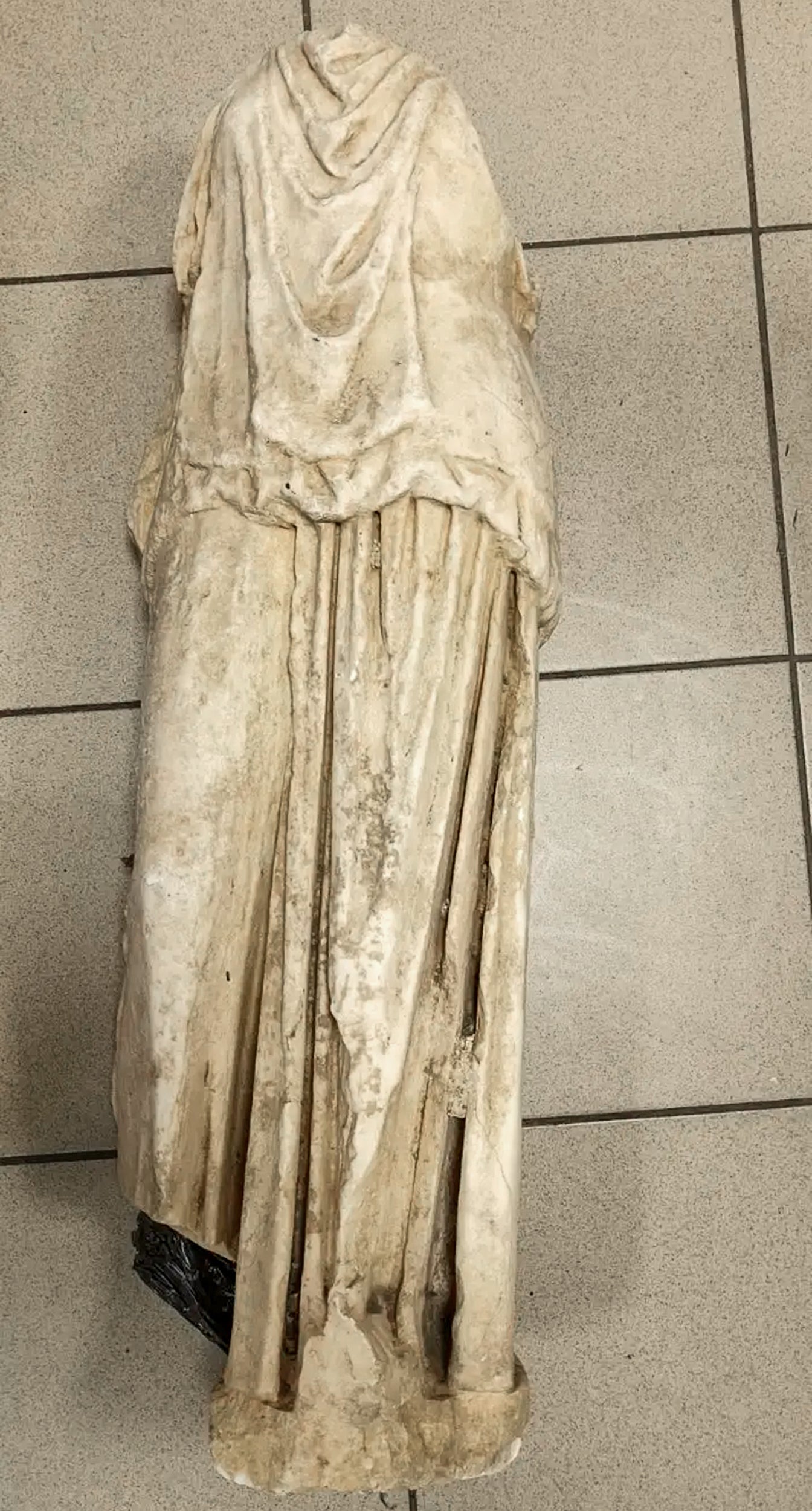A more than 2,000-year-old marble statue of a woman has been found discarded in a rubbish bag near Thessaloniki, Greece.
A local resident stumbled upon the 31-inch statue next to a bin in Neoi Epivates and promptly alerted authorities.
Experts believe the statue dates back to the Hellenistic period (320-30 BC), a time of significant artistic and cultural growth following Alexander the Great’s conquests. This era witnessed a flourishing of sculpture, and the discarded statue offers a glimpse into this rich historical period.
Following an initial assessment, archaeologists confirmed the statue’s Hellenistic origins. It has been sent for further examination and will eventually be transferred to the local antiquities authority for preservation and in-depth study.
Police opened an investigation to determine who discarded the statue and briefly detained a man for questioning who was later released without charge.

Accidental archaeological discoveries are relatively common in Greece, a country renowned for its ancient heritage, and often made during building construction or public works.
In December, workers installing natural gas pipelines near Athens uncovered a Roman-era statue of Hermes buried upright in a brick-lined pit near the Acropolis.
Thessaloniki has also unveiled a trove of antiquities found during the decades-long construction of its metro system, which officially opened in November.
Key finds, including a marble-paved Roman thoroughfare and tens of thousands of artefacts spanning the Greek, Byzantine, and Ottoman periods, are now showcased at subway stations.
In 2013, an 1,800-year-old carved stone head of a possible Roman god was found in an ancient rubbish dump in County Durham.
The discovery was made at Binchester Roman Fort, near Bishop Auckland, as a team dug through an old bath house.















